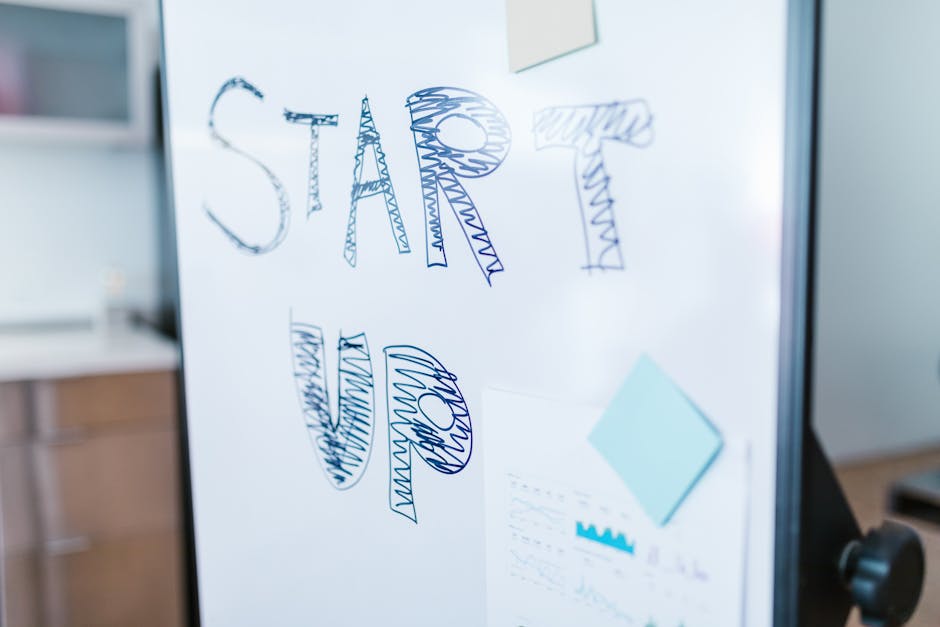Safeguard Your Ideas: Crowdfunding’s Hidden Legal Risks
In today’s innovative economy, crowdfunding has emerged as a game-changer for entrepreneurs, artists, and innovators seeking funding. However, the exhilaration of bringing an idea to life in a collaborative online space can quickly morph into a legal quagmire if proper precautions aren't taken. This article will delve into the often-overlooked legal implications of crowdfunding, particularly focusing on protecting your intellectual property (IP). We will discuss how creators can navigate the complexities of copyright, trademark registration, and the risks associated with publicly sharing ideas before securing legal rights. By the end of this exploration, you'll be armed with practical best practices to safeguard your creative ventures while successfully tapping into the realm of collective financing.
Understanding the Legal Landscape of Crowdfunding
Crowdfunding platforms have transformed fundraising into a global phenomenon, allowing creators to solicit financial support from backers who believe in their vision. However, this openness also invites intricate legal considerations, especially regarding intellectual property. Each crowdfunding platform has its unique terms and conditions, which often carry stipulations that can dramatically affect a creator's rights to their work.
The Importance of Intellectual Property in Crowdfunding
In the crowdfunding arena, intellectual property rights serve as your defensive shield. Whether you’re launching a revolutionary gadget, penning an electrifying novel, or developing an innovative app, understanding the nuances of IP— from trademarks to copyrights to patents—is essential. Without the correct protections in place, your innovative ideas are vulnerable to theft or unauthorized use.
For instance, consider the story of a startup that launched a tech product on a popular crowdfunding site. Thrilled by the positive response, they shared product specifications and prototypes publicly. Unfortunately, a competitor took note, copied their concepts, and launched a competing product. This scenario underscores the critical importance of solid legal foundations before publicly unveiling your creation.
Copyright—Your First Line of Defense
Copyright protects original works of authorship, from written content to software and multimedia creations. As a creator, your initial step is to verify that your work is original and not infringing on another's copyrights. Moreover, registering your copyright grants you enhanced legal protections and enables you to assert your rights in case of infringements.
But how does this play into crowdfunding? By registering your work before you launch your campaign, you can establish a date of creation—crucial evidence in any future IP dispute.
Trademark Registration—Secure Your Brand
If branding is central to your crowdfunding campaign, trademark protection is essential. A trademark helps ensure that your brand name, logo, or slogan is uniquely associated with your product or service. Applying for a trademark not only gives you exclusive rights but also prevents others from using confusingly similar marks. Failing to secure a trademark could lead to dilution of your brand and confusion in the marketplace—something the creators of successful campaigns work hard to avoid.
As you embark on your crowdfunding journey, consider conducting a trademark search to ensure that your desired names and logos are available, saving you potential legal headaches down the line.
Risks of Public Disclosure
The excitement surrounding crowdfunding can cloud judgment when it comes to information sharing. Many creators underestimate the potential risks of divulging too many details about their projects in publicly accessible platforms. Offering precise information regarding your intellectual property before securing proper protections can invite competitors to replicate your ideas.
Additionally, targeting your appeal to backers often necessitates a narrative that articulates your vision compellingly. While storytelling is vital for engaging potential supporters, it's crucial to strike a balance. Avoid oversharing intricate details that could compromise your intellectual property.
Best Practices for Legal Protection

As you prepare to launch your crowdfunding campaign, several best practices can help protect your intellectual property:
-
Conduct a Thorough IP Audit: Before you go public, conduct an extensive audit of your ideas and creations. Identify what elements are proprietary, and evaluate their potential for copyright or trademark protection. This proactive approach will help you identify any gaps in your legal coverage.
-
Seek Legal Counsel Early: Consulting with an IP attorney is invaluable. A legal expert can help you navigate the complexities of IP law pertinent to your project. They can assist in securing patents, trademarks, or copyrights before launching your campaign, ensuring maximum protection.
-
Draft Well-Defined Non-Disclosure Agreements (NDAs): If you’re working with collaborators or investors, consider having them sign an NDA before discussing your project in detail. This can safeguard sensitive information and provide you with legal recourse if there’s a breach.
-
Engage Your Backers Wisely: When sharing your project with backers, prioritize the overall vision and purpose without revealing intricate project details. Cultivating excitement is key, but focus on the potential and benefits rather than trade secrets.
-
Leverage Community Support: Engage your community as advocates for your project. Building a strong, loyal audience can act as an additional layer of protection, as devoted backers will rally behind your product and be less likely to support copycats.
Exploring Existing Resources

For creators looking for further insights, numerous resources can help navigate the crowdfunding landscape while protecting intellectual property rights. The Harvard Business Review has valuable articles outlining legal considerations for startups and the necessity of IP strategy when raising funds. Additionally, you can read about emerging challenges in the legal landscape, such as navigating legal issues in quantum computing.
Moreover, it's essential to stay informed about trends within crowdfunding. Reports from Clutch or Statista provide valuable data on the status of crowdfunding and its implications on various industries.
Real-World Examples: Lessons Learned

Examining real-world scenarios can shed light on the importance of legal protections in crowdfunding. Take the case of the “Smart Cups” project, a company that experienced tremendous initial success on crowdfunding platforms. However, they faced legal setbacks after failing to protect their intellectual property promptly. Their story serves as a cautionary tale; no matter how promising your idea may appear, establishing the legal groundwork ensures longevity and success.
Funding Alternatives for Creatives

While crowdfunding is a powerful tool, it’s not the only option available for funding creative projects. Many artists have found success through angel investors, grants, or government funding programs designed for entrepreneurs. Each method carries its unique implications regarding intellectual property rights, so researching and consulting with legal counsel remains vital.
The Future of Crowdfunding and IP

As crowdfunding continues to evolve, the intersection of law and creative finance will become even more critical. Emerging technologies and shifts in consumer behavior will constantly shape the legal landscape. Startups must remain agile, adapting their IP strategies to protect their work effectively.
As you venture into crowdfunding, remember that knowledge is power. Equip yourself with the information and tools necessary to shield your ideas from potential threats.
Final Thoughts
The benefits and opportunities available through crowdfunding are undeniable, yet so are the legal complexities. Creators must take proactive steps to ensure their intellectual property is safeguarded before embarking on the crowdfunding adventure. Understand the legal landscape surrounding IP and institute essential protections by adopting best practices. Making informed decisions early in your project can mitigate risks and safeguard your innovative ideas for the long haul.
By taking the necessary precautions, you can focus on what truly matters: transforming your project from dream to reality. Remember, knowledge and foresight are your greatest allies in the age of collective financing.








